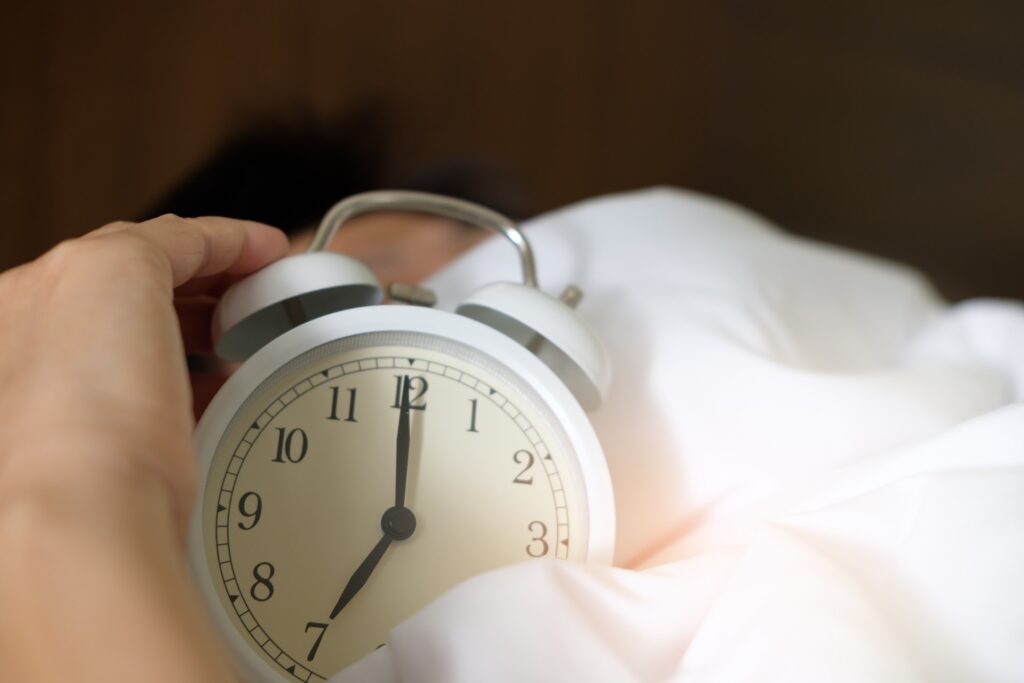
Lack of Rest and its Effect on Your Physique Development Efforts
Exercise, nutrition, and rest — the triad that ensures optimal health and efficient recuperation in your efforts to create the physique that you desire. All three are vital and are all equally important. Without sufficient attention in each area, your athletic performance and development result bomb.
Much has been said about exercise and nutrition and their effects on physique enhancement, but how often do you hear about rest and its importance to your physique development goals?
How Much Rest Do You Need?
Recuperation from training occurs only during rest and sleep. The general rule of thumb for complete recuperation is 7.5 to 9.5 hours of sleep a night. If you are training intensely, a 30-60 minute nap a day is also recommended. (1)
Many people feel they can get by on less sleep. Without adequate rest not only can your progress stall or even reverse itself, you could also be placing yourself at risk for serious negative health consequences.
The Results of Inadequate Rest and Recuperation
Without proper rest the neuroendocrine system becomes exhausted. This alters hormone levels and makes optimal performance impossible. (2) For athletes or people training to enhance their physique, this can result in overtraining syndrome. It has been shown that lack of proper rest is the primary cause of overtraining. (3,4)
Severe over-training over an extended period can result in Addison’s Disease, which is a permanent reduction of the functioning of the adrenal system. When this happens the adrenal glands are no longer able to maintain proper hormone levels and athletic performance is severely compromised.
Suppression of the immune system can also occur resulting in higher susceptibility to infection and disease. (5) In addition overtrained individuals are more prone to injuries. (6)
The Symptoms of Insufficient Rest
There are several key parameters that indicate if a person is not fully rested.
Elevated waking heart rate: If waking heart rate is more than 8bpm (beats per minute) higher than the average for the previous week, it is an indication of lack of rest. To determine your waking heart rate, measure your pulse immediately upon waking and before getting out of bed.
Insomnia: Training prior to sleep is not advised since it raises adrenalin levels which impair sleep onset. If you are not training before bed and yet are suffering from restlessness, inability to fall asleep, or waking too early, you could be in an unrested state.
Lack of motivation and mood swings are also signs that you may be getting insufficient rest. If you are experiencing these conditions or any of the ones described above, you should immediately take action to cure your lack of rest.
The Cure
The cure for inadequate rest consists of three simple steps:
1.) Eliminate training for 1 week
2.) Increase sleep to 9.5 hours per night
3.) Increase carbs to 70% of total calories and reduce protein intake to 15% of total calories
Follow these three steps for a week. Your performance in and out of the gym should perk up considerably. If you are still experiencing signs of exhaustion, consult your doctor.
Adequate Rest and Recuperation — an Integral Component of Optimal Health and Fitness
Adequate rest is crucial to your health and your physique development efforts. Following the steps outlined will help you determine your level of restfulness. If necessary, implement the plan indicated to cure lack of rest.
Your health will benefit, you will feel remarkably better, and your progress in creating the physique you desire will improve dramatically!
References
(1) Colgan M, Optimum Sports Nutrition, Advanced Research Press, 1993
(2) Vern A, Hormones in Muscular Activity, CRC Press 1985
(3) Bompa TO, Theory and Methodology of Training, Kendal Hunt Publishing, 1983
(4) Fry RW, Morton AR, Kost D, Overtraining in Athletes, Sports Medicine, 1991;12:32-65
(5) Jokl E, The Immunological Status of Athletes, Journal of Sports Medicine, 1984;14:165-167
(6) Galloway J, Galloway’s Book on Running, Shelter Publications, 1984
